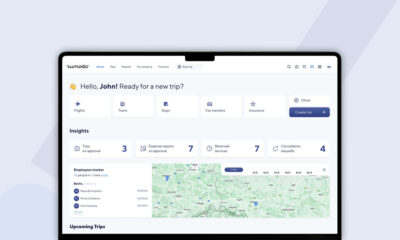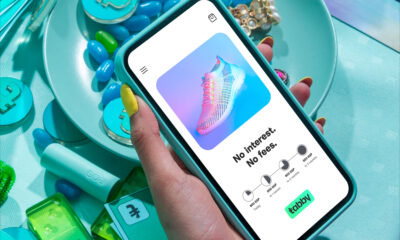News
Tumodo & Tabby Drive Innovation In The UAE’s Travel Market
The collaboration signifies a significant step forward in digitizing MENA business travel, including the use of AI technologies.

UAE business travel platform Tumodo is set to integrate its services with Tabby, a leading MENA shopping and financial services app, in a move that will further the digital transformation of the region’s travel market.
Tabby already helps millions of people in the MENA region stay in control of their finances. Now, with the integration of Tumodo’s platform, business travelers will gain improved control over their travel expenses, along with greater transparency and accountability.
“The collaboration with Tabby signifies a major step forward in our mission to digitize business travel in the UAE and GCC, including the use of AI technologies. Now, we can extend brands’ reach to a wider audience and lead to a sustainable future,” said Vladimir Kokorin, founder of Tumodo.
Tumodo’s MENA expansion also comes at a time where the company is doubling its efforts to promote sustainable travel. Tumodo is advising all customers and partners on how they can be more eco-friendly when it comes to travel, and how to minimize the ecological impact of business trips.
Also Read: Oracle Is Planning To Build Two New Cloud Regions In Morocco
By 2022, spending in the global business travel market had risen to $1.03 trillion. However, that figure is expected to surpass the pre-pandemic figure of $1.4 trillion sometime this year. Despite many companies continuing to prefer online meetings, the business travel market continues to grow rapidly and is expected to reach $1.8 trillion by 2027.
The integration of Tumodo’s travel platform into Tabby’s service will surely enhance business efficiency and reinforce both companies’ commitments to sustainability. Meanwhile, the UAE will also benefit as it continues to grow into a leading business hub focused on sustainable practices.
News
Mamo Completes $3.4M Funding Round To Enhance Fintech Services
The startup will use the influx of cash to expand into Saudi Arabia and across the wider GCC while improving its product offering.

UAE-based fintech Mamo has announced the completion of a $3.4 million funding round that will help the startup extend its market presence and improve its product offering. Investors included 4DX Ventures, the Dubai Future District Fund and Cyfr Capital.
Mamo’s platform offers “payment collection, corporate cards and expense management” to help small and medium-sized businesses consolidate and streamline their operations. With the latest influx of capital, Mamo will further develop its comprehensive suite of services and begin testing its product lines in Saudi Arabia, further extending its footprint across the GCC.
Imad Gharazeddine, co-founder and CEO of Mamo, stated: “We’ve been in the market for a while now and are incredibly proud of what our team has achieved. The holistic and expansive nature of our product offering has helped us continue to grow sustainably. This additional funding will allow us to reach our medium-term goals even faster. The support from new and existing investors is a testament to our strong expertise and the ability to deliver on our customer promise”.
Daniel Marlo, General Partner of lead investor 4DX Ventures, added: “We have immense trust in Imad’s vision, leadership and Mamo’s innovative approach to provide a user-friendly and comprehensive financial solution for SMEs that makes financial management more accessible and efficient. We are proud to partner with them and support their mission”.
Also Read: A Guide To Digital Payment Methods In The Middle East
Amer Fatayer, Managing Director of Dubai Future District Fund’s investment team, also commented: “Mamo’s localized product lines serve as an infrastructure for SME payments and spend management in UAE, a segment that is underserved by the country’s current banking infrastructure. The team has taken a product-first approach to consolidating SMEs’ financial journeys and building a fintech solution deeply embedded in a business’s core operations”.
To date, Mamo has raised around $13 million in investment funding and now boasts a team of 30 people. The company’s intuitive financial services platform has allowed over 1,000 businesses to consolidate their financial operations and significantly reduce payment fees.
-

 News4 weeks ago
News4 weeks agoAmazon Prime Day 2024: Get Ready For 6 Days Of Amazing Deals
-

 News4 weeks ago
News4 weeks agoSamsung Unpacked 2024: What To Expect From The July 10 Event
-

 News4 weeks ago
News4 weeks agoCoursera Report Shows Surge In UAE Interest In AI Upskilling
-

 News4 weeks ago
News4 weeks agoMeet Dubai’s Groundbreaking Smart Robot Delivery Assistant
















